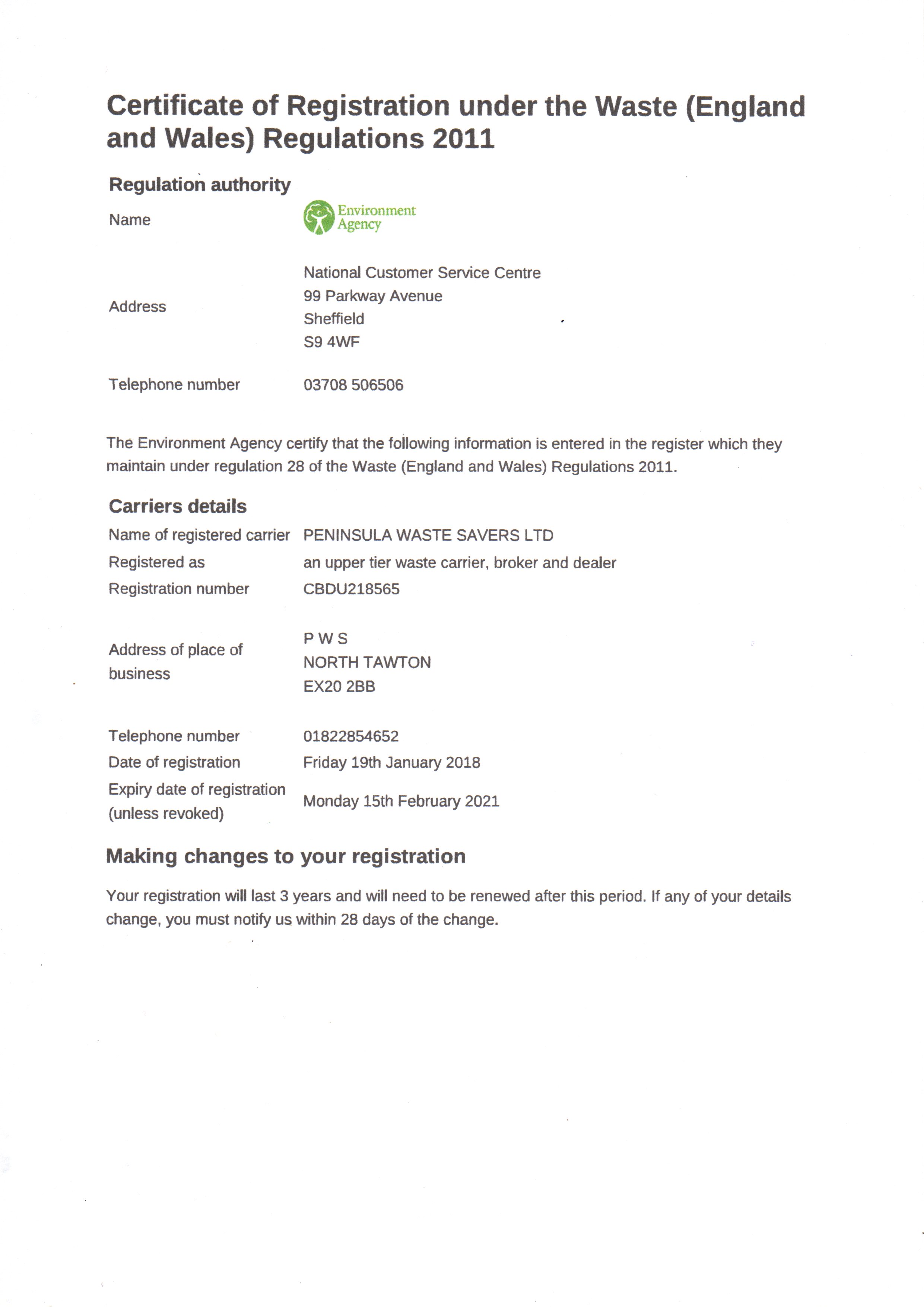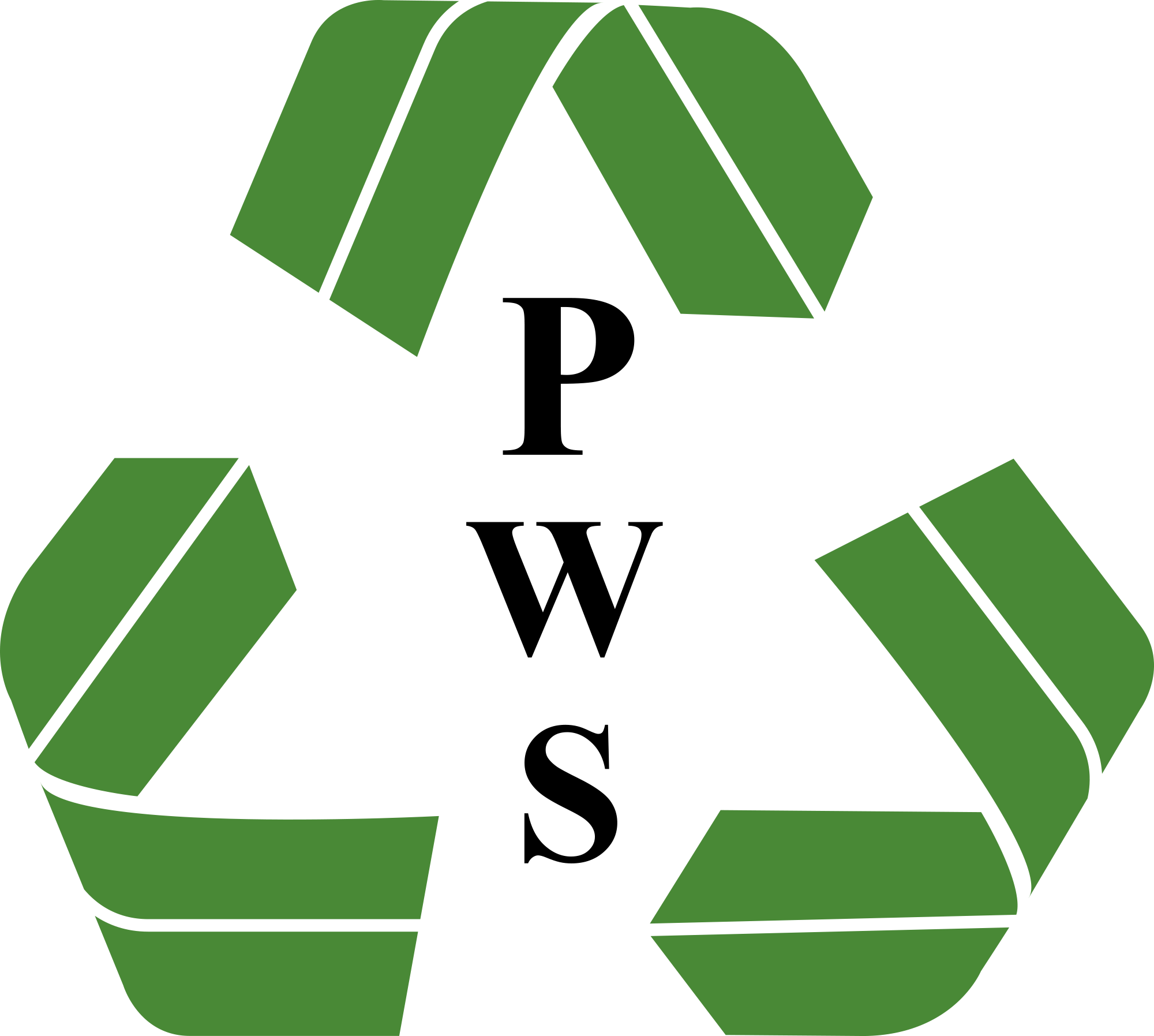Environment Agency Licence

The Law and You
Here, we try to simplify for you the various laws and regulations on waste / recycling, which apply to any business.
In Environmental Law terms:
- Producer is any person or corporate body which produces "Controlled Waste".
- Controlled Waste is paper, plastics, metals, print cartridges, food and drink containers,
defective products, electric and electronic items, batteries, and also some other materials,
such as PVC and uPVC window frames, guttering, batteries and many textiles.
The Environmental Protection Act, 1990 introduced a framework for a Duty of Care in respect of Waste.
The Landfill Regulation Act, 2002 followed, and under this act: the Duty of Care regulations came into force, in October, 2007.
The Duty of Care imposes criminal sanctions on any Producer not complying with the regulations. The Duty of Care applies to everyone involved with the waste, from the Producer through to the party who finally disposes of it. It is important to note that the Producer remains responsible for the proper treatment of the waste up to its final destination. There is no time limit on the Duty of Care. The Producer's main obligations under this Duty are:
- Pre-Treatment of waste. This means separating non-hazardous and non-liquid waste material (as in 'Controlled Waste') from residual waste which can not be recycled. It also includes segregation of the different types of material so that they are kept free from contamination by other materials or soiling. Only clean material can be recycled.
- Ensuring that the Waste is stored, transported and handled by people or businesses which are licensed to do so.
- Completion of a Waste Transfer Note. The new form of the Waste Transfer Note includes a requirement that the Producer certifies that they have complied with the Duty of Care provisions and applied the Waste Hierarchy. WTN's must be retained for at least two years.
The Waste (England and Wales) Regulations came into force in September, 2011, and introduced The Waste Heirarchy as a mandatory obligation on both Producers and waste management companies. This must now be applied to all waste issues, and waste must be managed in the following order of priority:
- Where possible, avoid creating the waste in the first place;
- If it can be re-used, facilitate this;
- If neither of these can be done, comply fully with the Duty of Care to enable recycling;
- Only if all the above are impossible, may the material be sent for Recovery. Recovery is not
recycling. Some examples of recovery are composting, incineration (including for energy-
from-waste, crushing glass for aggregate; - Disposal may only take place if none of the above are possible.
It is important to note that you the Producer, are responsible for compliance with all the above provisions, from the outset, right through to the waste's final destination, even where you pass the responsibility to another party. The authorities advise that you carry out your own checks to ensure that full compliance is taking place: you are entitled to carry out site visits and audits to do this.
Environmental Policy Statement
As an organisation directly involved with minimising environmental impact, and the reduction of pollution, landfill, and use of non renewable resources, this Company is wholly committed to upholding these standards within its own operations.
The Company is fully dedicated to furthering the causes of recycling and re-use, and maintaining compliance with Environmental legislation and codes of practice. Its policy is to raise awareness among its own staff, suppliers and clients, of environmental issues, and sustainability, including reducing pollution and emissions, and through sound practices in waste management.
In order to minimise the impact on the environment of the Company’s activities, its strategy is:
- To put environmental sensitivity at the forefront of business decisions and operations wherever possible;
- To take into account in procurement, of environmental impact criteria, both in production and distribution, and consciously to avoid, wherever feasible, goods or services from non-sustainable or polluting sources;
- To use second-life or recycled products, or those manufactured from recyclate, wherever viable;
- To minimise the use of energy, and eliminate wasteful use;
- To schedule all transportation in a manner which will minimise toxic emissions, by maximising collection runs, and using return-haulage;
- To offer free of charge, advice, guidance and learning tools to all or any party, whether of commercial value to the company or not, in order to widen public knowledge of pollutants, harmful products, availability of recycling outlets, and sustainable living and working;
- To keep abreast of developments in recycling techniques and systems which widen the scope of recycling feasibility;
- Not to send any recyclable materials for Incineration, on the basis that the residues from incineration are highly toxic and do in fact end up in landfill, whereas this can be avoided by recycling or reprocessing;
- To meet, and exceed the requirements of Environmental legislation.
